
by admin | Oct 23, 2017 | Health Awareness
Multiple Sclerosis is a disease in which the immune system of the body causes damage to the CNS, hence any supplement that is responsible for boosting the immune response should be avoided.
In such a case, the dosing is a big factor when it comes to minerals and supplements because the intake of higher doses can be harmful. It is very important for patients of MS to consult with a doctor to properly determine the dose that will be most effective.
BASICS ABOUT VITAMINS AND MINERALS
Vitamins are chemicals that are required by our body for the maintenance of health. Minerals are inorganic substances that also required by the body just like vitamins to stay healthy.
However, it should be considered that intake of too much of certain minerals and vitamins can be dangerous to health so it is very important to talk to the doctor before any supplements are taken.
Vitamins and Minerals for those with Multiple Sclerosis (MS)
A variety of minerals and vitamins are evaluated to be used for the treatment of MS. The most important of them include vitamins with antioxidant effects like vitamin C, vitamin E and selenium.
Vitamin D: People with MS have increased risk for bone loss, hence the intake of vitamin D for the maintenance of healthy bones is essential. Various studies show that increased levels of Vitamin D in the blood is associated with a decreased chance of developing MS.
Antioxidant Vitamins – Vitamin A, C & E: Intake of antioxidant vitamins like vitamin A, C and E reduce the damage in the body that is caused by free radicals.
Urinary tract infections that are common with people with MS, can be treated by the intake of vitamin C.
Vitamin E which can be found in nuts, vegetable oils and fruits is also responsible for the prevention of oxidative damage of the body.
Vitamin A known commonly as an important vitamin for the eye, sources include eggs, liver and cod liver oil. This vitamin also helps in the promotion of normal cell growth throughout the body.
Vitamin B6: Vitamins B6 supplements are taken to increase energy. Sources of this vitamin include fish, chicken and pork, vegetable and bananas. Care should be taken to not take this vitamin in high dosage because it can cause tingling, numbness and pain.
Vitamin B12: Natural sources of this vitamin include poultry, fish, eggs and dairy products. Deficiency of this vitamin can lead to neurological symptoms of MS however they are only found in a small number of patients.
Selenium: Sources of selenium include seafood, meats, whole grains, dairy products. Selenium has antioxidant effects and its supplementation is useful in the treatment of MS. A study shows the potential of balancing biochemical abnormalities in MS patients with selenium. Another study shows selenium, that contains antioxidant enzymes, is active in reducing oxidized molecules in the body.
Calcium: A proper intake of calcium is important to maintain healthy bones and teeth. It is also responsible for the regulation of various vital processes of the body. People with MS are observed to have an increased risk of bone loss so the intake of an adequate amount of calcium is very crucial.
However, high dosage of calcium can result in toxic effects, to avoid it calcium intake should not exceed 2000 mg per day for people above 50 years of age and 2500 mg for people above 19 years of age.
Zinc: Zinc is used by the body in multiple different processes. Some studies have shown that people who suffer from MS have either low levels of zinc or the opposite. This means that zinc works to activate the immune system but supplementation can worsen the condition. A high intake of zinc can also lead to a copper deficiency.
Another largely experimental treatment for MS is stem cell therapy. Learn more about the potential of stem cells treatment for Multiple Sclerosis here.
Reference: Vitamins, Minerals, and Supplements (2015, May)

by admin | Oct 20, 2017 | Stem Cell Research
Xiaodong Pang and colleagues have demonstrated the successful use of human umbilical cord tissue-derived mesenchymal stem cells in the treatment of chronic discogenic low back pain. The study, published in Pain Physician, is the first study to addressing the potential of this particular treatment option for chronic discogenic low back pain.
Chronic discogenic low back pain is the leading cause of chronic low back pain, which leads to a significant amount of disability. This type of back pain does not currently have any highly successful treatment options. Generally, the pain is managed conservatively, and if all else fails, surgical fusion is undertaken. Neither of these options addresses the underlying cause of chronic discogenic low back pain and instead simply address the symptoms, offering ways to try to reverse those symptoms.
In this initial study conducted by Pang and colleagues, the researchers aimed to establish that human umbilical cord tissue-derived mesenchymal stem cells could be both feasibly and safely used in humans to treat chronic discogenic low back pain. The study, conducted at a spine center in China, focused on two patients with chronic discogenic low back pain. Both patients underwent the transplantation of the stem cells, and their back pain symptoms and lumbar function were assessed both immediately after the transplants and again two years later.
The researchers found that both the pain and the function associated with the patients’ back conditions improved immediately after the stem cell transplants. In addition to demonstrating that this particular transplant procedure was feasible, the researchers also showed that it was safe, as neither patient suffered side effects.
There are a number of reasons for which human umbilical cord tissue-derived mesenchymal stem cells may provide the benefits that these researchers observed. For instance, unlike other stem cell types, these cells have the ability to differentiate into a number of different types of cells. The results of other studies suggest that these stem cells may help with this lower back condition by altering cell activity such that less inflammation occurs.
Going forward, researchers will need to replicate the findings of this study to show that the positive effects of human umbilical cord tissue-derived mesenchymal stem cells in chronic discogenic low back pain extends to the general patient population. Further, as the mechanism by which these cells may improve the condition is not clear, research that helps to elucidate the way these cells confer their benefits will also help in the development of relevant therapeutic interventions.
To learn more about stem cell treatments click here.
Reference
Pang, X, Yang, H, & Peng, B (2014). Human umbilical cord mesenchymal stem cell transplantation for the treatment of chronic discogenic low back pain. Pain Physician. 17: E525-530.

by admin | Oct 18, 2017 | Health Awareness
Tea and coffee are one of the most consumed beverages all over the globe, apart from being the most enjoyed drinks both of them have various health benefits as well.
COFFEE
Coffee beans are found growing on flowering trees in more than 50 countries worldwide, to prepare the beans for consumption they are roasted and then ground, boiled, steamed and even soaked depending on how they are usually liked in various parts of the world.
TEA
Known to be the most common beverage, tea is made from the leaves of a bush named Camellia sinensis. Tea is prepared by leaving the leaves in boiling hot water for a while, typically few minutes and then taken hot or cold with ice depending on the preference of the individual.
DIFFERENCE BETWEEN GREEN, OOLONG AND BLACK TEA
Tea leaves are crushed and dried to extract oils from them, after that they are exposed to open air depending on what kind of tea is being produced. The more they are exposed to air the more amount of caffeine they have. This whole process is called fermentation that is responsible for changing the color of tea and affecting the flavor.
So, green tea contains leaves that are not fermented, the reason why it has no caffeine. Oolong tea has a little amount of caffeine and black tea the darkest of all has the highest amount of caffeine and the most fermented.
Free Radicals: Free radicals are chemicals that cause damage to cells leading to various diseases, they are produced in the body when food is converted to energy or sunlight is being absorbed by the body. Since tea and coffee are quite rich in antioxidants they help the body fight against the free radicals.
Type 2 Diabetes: Both coffee and tea contain a rich amount of antioxidants that help maintain low sugar levels in the body by helping the body process sugar easily. This leads to a lower chance of getting diabetes since it is caused by abnormal sugar levels in the blood. A study of 220 normal subjects and 48 diabetic subjects resulted to show how the fasting blood glucose was lower in normal and diabetic subjects who consumed coffee.
Parkinson’s Disease: A serious neurodegenerative disease that affects the neurons in the brain, leads to the impaired movement of the body. Studies show that coffee and tea ease the symptoms of this disease and drinking these beverages daily can protect the body from it in the first place.
Heart Disease: A recent study showed that people who consumed 3 to 5 cups of coffee on a daily basis had a less chance of having a buildup of calcium in the blood vessels responsible for transporting blood to the heart. This obviously means a less chance of heart disease.
Liver Disease: Daily intake of 3 or more cups of coffee lowers the chances of suffering from a chronic liver disease, liver cancer, and cirrhosis. Coffee is said to contain 100 different types of chemicals in it and the recent studies are geared towards learning what the function of each compound could be and how it can help with liver issues.
Stroke: Stroke is a condition when a certain part of the brain stops getting a blood supply. Daily intake of a cup of tea or coffee lowers the chances of a stroke because they help reduce inflammation and reduce the sugar levels in the blood. Black tea is especially linked to maintaining a low blood pressure making it less likely for a person to have a stroke.
Cancer: The presence of antioxidants called polyphenols in green tea and coffee help prevent cancers that affect the ovaries and stomach, also known to be highly beneficial to avoid breast and prostate cancers.
Alzheimer’s Disease: A condition that attacks the neurons of the brain, this can lead to a memory loss and serious changes in behavior. Studies show that the antioxidants present in coffee can protect neurons and green tea helps prevent the formation of clusters or proteins in the brain that lead to the development of this disease.
Gallstones: Gallstones are small pieces of hardened cholesterol that are formed in the organ called gallbladder, an organ that helps with digestion. This condition can cause excruciating pain and serious health issues. Coffee is said to lower the chances of stone formation because it aids in moving the fluid through the gallbladder making the cholesterol less likely to harden.
Weight Loss: Intake of low sugar beverages like tea and coffee instead of others makes it easier to lose weight. These drinks are satisfying with a very low-calorie content.
Don’t Overdo It: Regardless of the numerous health benefits of tea and coffee, intake of too much coffee and tea can cause anxiety and also make it difficult to sleep, too much consumption can also lead to calcium deficiency. Consult with a doctor regarding how much is sufficient for you.
Find out which foods can help you reduce pain!
Reference: Health Benefits of Coffee and Tea (2017, Feb 10)

by admin | Oct 16, 2017 | Stem Cell Research
In a study published in Cell Stem Cell, researchers helped to clarify the mechanism by which mesenchymal stem cells achieve their immunosuppressive effects. While immunosuppression is not always appealing, there are certain contexts in which suppressing the immune system is critical. These cases include patients with autoimmune disease, where their immune system begins attacking the body’s organs, as well as skin grafts, where the immune system’s reaction to new skin often leads to graft rejection.
Mesenchymal stem cells have been strategically chosen over other types of stem cells when their immunosuppressive properties are beneficial. Nonetheless, because the specific reasons that these cells lead to immunosuppression are unknown, researchers have begun to investigate potential ways that the immunosuppression occurs.
One critical factor that the researchers considered was that the immunosuppressive effects of mesenchymal stem cells may not be innate. Given that immunosuppression is not always observed when mesenchymal stem cells are employed, the researchers hypothesized that the immunosuppression may depend on the presence of other factors in combination with mesenchymal stem cells.
Nitric oxide was one factor of particular interest to the researchers because nitric oxide is known to suppress the immune system’s T cells. Nitric oxide easily diffuses across barriers and interacts with a number of important proteins, making it an attractive candidate for contributing to immunosuppression that is observed with the use of mesenchymal stem cells.
Consistent with their hypothesis, the researchers found that nitric oxide does mediate the immunosuppression achieved by mesenchymal stem cells and demonstrated a specific mechanism by which this mediation occurs. This new information improves our understanding of how mesenchymal stem cells work and will therefore also enhance our ability to strategically use these cells to achieve the therapeutic benefits for which we strive.

by admin | Oct 14, 2017 | Stem Cell Research
Research into stem cell-based therapies has increased in recent years due to observations that these types of cells can provide new avenues for treatment where other treatment options are limited. Though bone marrow mesenchymal stem cells have been the gold standard of stem cell-based therapies, there is mounting evidence that umbilical cord stem cells may offer some advantages over bone marrow mesenchymal stem cells, as well as other popular stem cell types, such as adipose tissue, periodontal ligament, and dental pulp. In a recent review in Tissue Engineering, Reine El Omar and colleagues describe the state of umbilical cord stem cell research and the potential benefits of using these cells in stem cell therapies.

According to Omar et al., umbilical cord-derived stem cells were once thought of as medical waste. However, they have now been shown to provide advantages over other stem cells in stem cell-based therapies in 3 major ways:
- Umbilical cord stem cells are easier to collect than are other stem cell types. Extracting bone marrow mesenchymal stem cells, for instance, is technically difficult and painful for donors. Umbilical cord stem cells can be painlessly collected and banked.
- Stem cells tend to proliferate more than other stem cells types. Other stem cell types have been shown to have limited proliferation and differentiation potential. Umbilical cord stem cells, on the other hand, appear to be more proliferative and differentiate longer.
- Umbilical cord stem cells are associated with less severe immune reactions than are other stem cells types. A critical aspect of the practicality of stem cells is their ability to act as therapeutic agents without causing adverse reactions. When the immune system perceives stem cells as dangerous foreign agents, the immune system can react in dangerous ways that lead to tissue damage and even death. Compared to other types of stem cells, umbilical cord stem cells appear to be associated with less severe immune reactions.
While efficacy is important for stem cell-based therapies, safety is perhaps more critical. Thus, research into how stem cells can be used therapeutically must focus not only on what therapeutic impact these cells can have but also what risks these cells pose. Future research will help to determine the safest cells to use and how those cells can best be incorporated to achieve their therapeutic goals.
Learn more about stem cell treatments here.
Reference
Omar et al. (2014). Umbilical cord mesenchymal stem cells: The new gold standard for mesenchymal stem cell-based therapies?
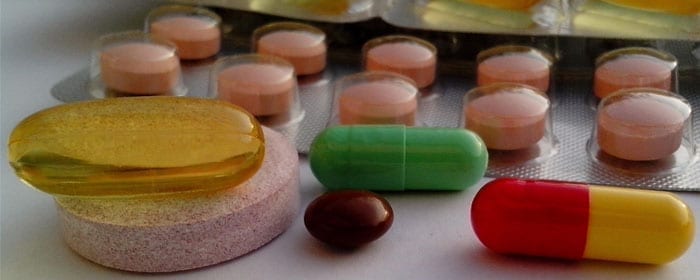

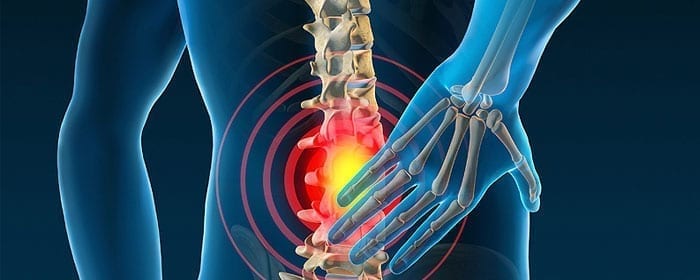

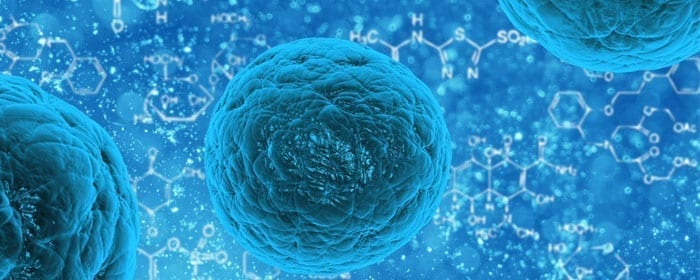
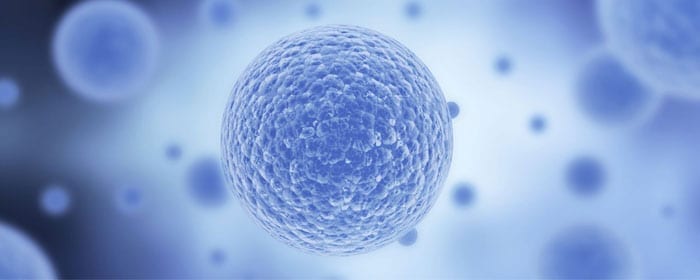
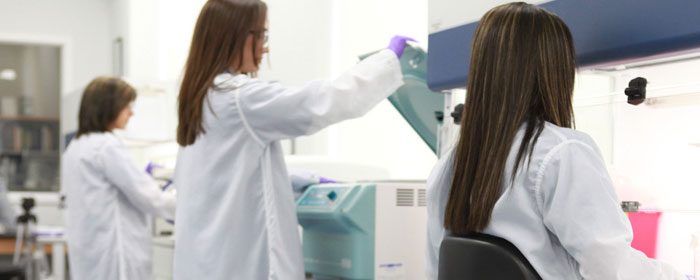
 St. Petersburg, Florida
St. Petersburg, Florida
